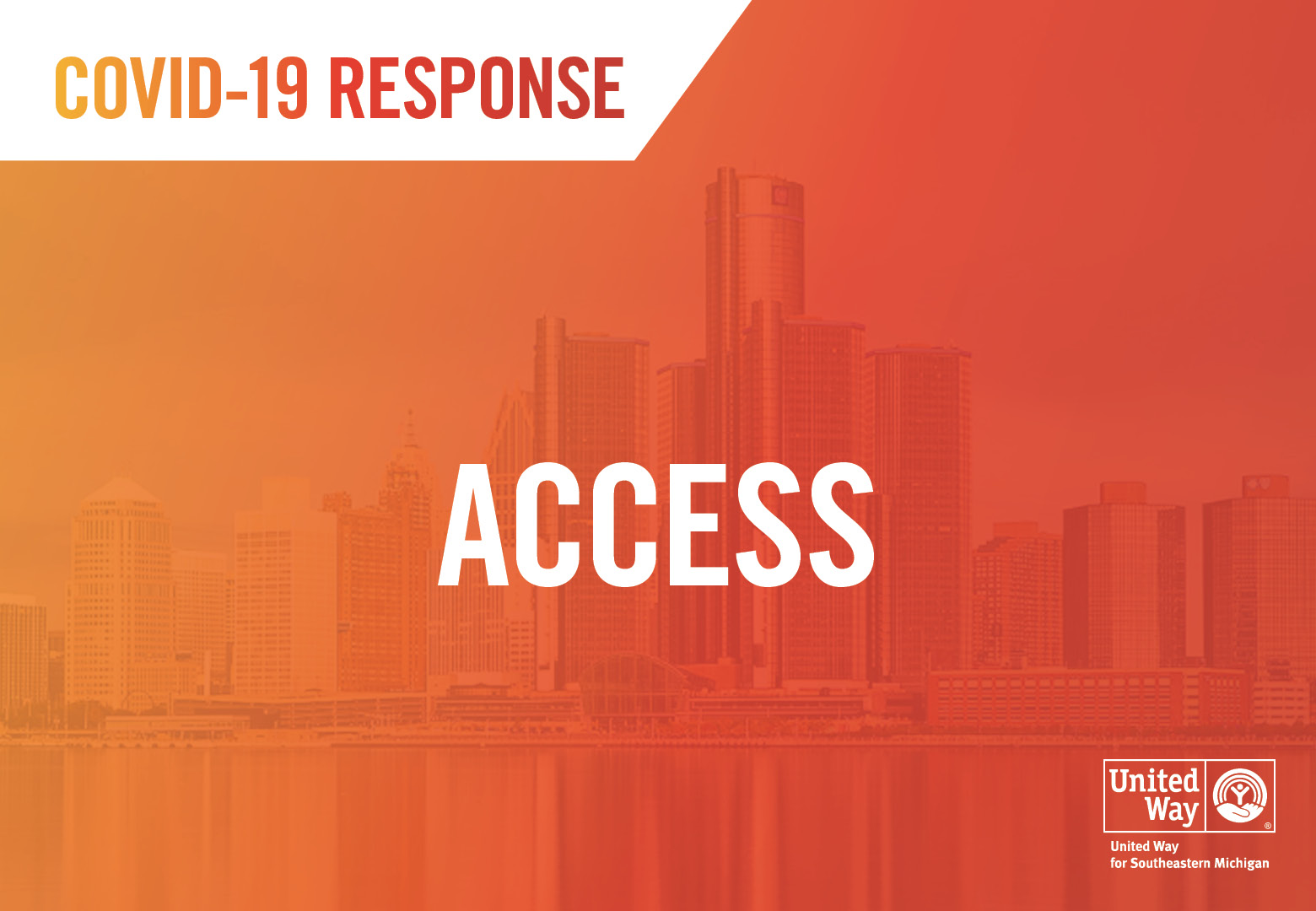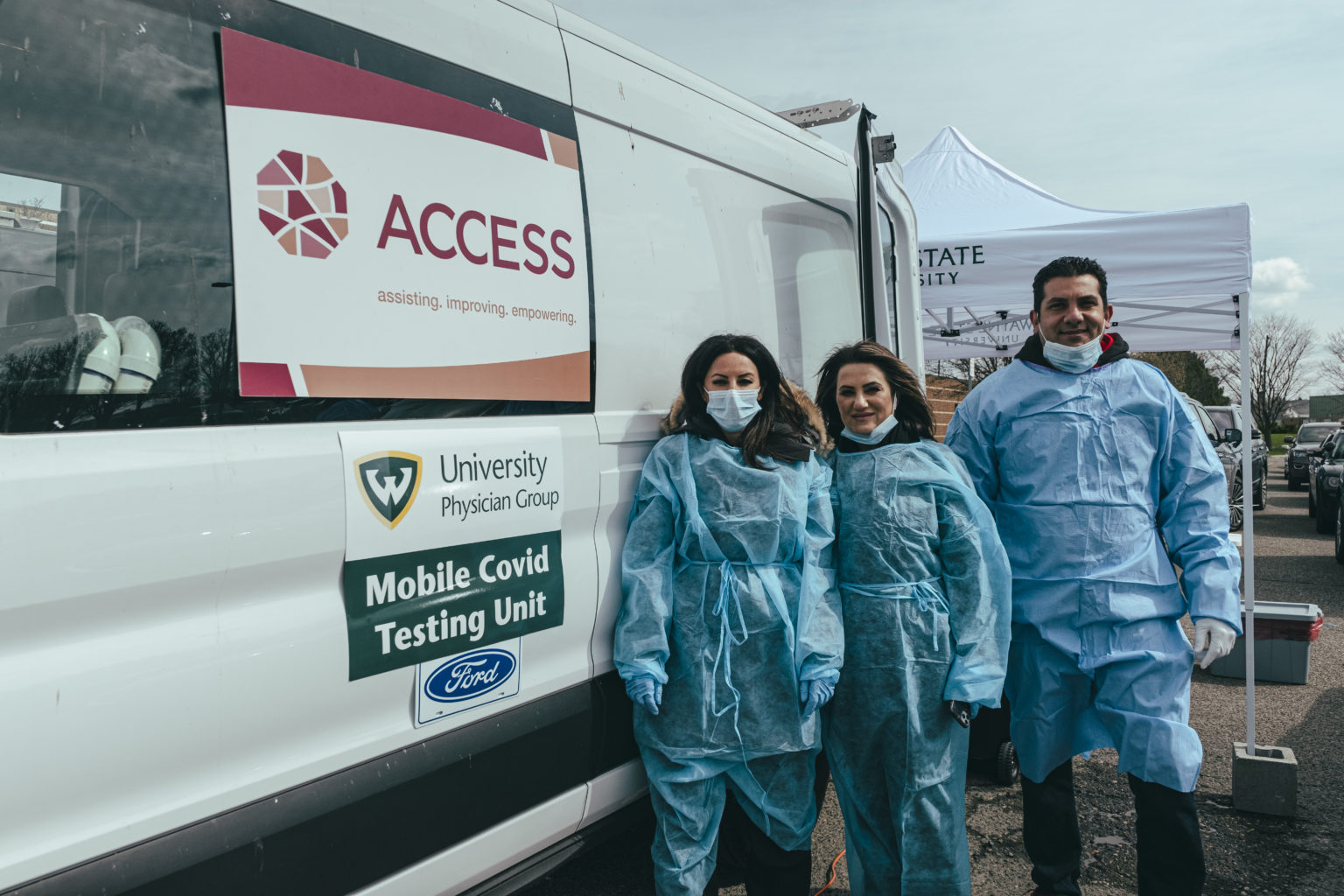COVID-19 Response Fund Partner Profile: ACCESS
Published on May 12, 2020 in Crisis Relief
United Way for Southeastern Michigan and our partners work to ensure that our region’s most vulnerable families have the support they need to weather the short- and long-term impacts of the coronavirus outbreak. The COVID-19 Community Response Fund allows us to rapidly deploy funds to organizations that are working tirelessly to help individuals and families access food, shelter, health care and other critical resources.
As of May 14, more than $13 million had been awarded to nearly 500 organizations.
We’ll continue to share more stories of how together, we’re helping families in Wayne, Oakland and Macomb counties weather this crisis. Visit our blog to learn more about how we’re responding.

Editor’s Note: This post is a guest blog by Lina Hourani-Harajli, chief operating officer with ACCESS.
The COVID-19 pandemic has brought with it a strange sense of irony: Those on the frontlines helping to heal and treat individuals are the same people who are also at the highest risk of exposure and infection. Though the primary concern is to stop the spread, hospital systems also bear the burden of managing an exponential increase in patients. They also do not have an appropriate supply of personal protective equipment (PPE) or the capacity to help manage this crisis.
ACCESS knew that we wanted to be on the ground helping to fill some of the ever-growing gaps in community need, as we have done so for the last 49 years. What we didn’t expect was to be on the frontlines ourselves, partnering with Wayne State University (WSU) and Wayne State University Physician Group (WSUPG) to provide much-needed access to COVID-19 testing. But after a week of non-stop preparation that included 20-hour workdays, on March 20 ACCESS helped launch two drive-through testing sites in Dearborn and Detroit to minimize the spread of the coronavirus by expediting screening, testing and follow-up care. This faster and more efficient way of testing not only helped identify and contain positive cases but would lessen the pressure on our hospitals and health care systems.
The project was partially funded by a grant from United Way for Southeastern Michigan’s COVID-19 Community Response Fund.
Looking back, the agility and flexibility that all parties involved exhibited to get the sites up and running as quickly as possible is a testament to what defines true collaboration. Our partnership with WSU and WSUPG — led by Dr. Phillip Levy, who was instrumental in helping to bring this project to fruition — was an ideal fit.
Our primary focus was to help alleviate the burden of responsibility on our health care systems and first responders by ensuring that these heroes who are out there risking their lives have the most basic of rights: access to testing.
And that’s exactly what our three organizations were able to quickly implement. ACCESS, WSU and WSUPG health care staff and volunteers successfully COVID-screened 3,700 and tested 3,300 first responders and health care workers over a three-week period, allowing 2,500 of these heroes to return to the frontlines where they were needed most.

Thanks in part to grant funding from United Way, ACCESS began mobile COVID-19 testing on March 20. Photo courtesy of ACCESS.
Improving Access to COVID-19 Testing
On April 13, ACCESS, WSU and WSUPG partnered with Ford Motor Co. to utilize fully equipped Ford vehicles to launch mobile testing services in Michigan, providing even greater access to COVID-19 nasal swab tests and later to antibody testing as well.
Already, the mobile testing team has reached areas as far west as Grand Rapids, Battle Creek and Flint, while focusing most of its efforts on hot spots across Southeast Michigan, in particular Detroit. Community centers, shelters, correctional facilities, critical infrastructure workers, facilities for the elderly, and police and fire departments fill the overflowing schedules. Testing will continue to take place as long as it is needed and as long as resources are available to assist those communities in dire need.
With the generous support of United Way for Southeastern Michigan’s COVID-19 Community Response Fund, this collaboration has been able to test well over 9,000 individuals so far. This initiative has helped meet some of the overwhelming and urgent demands for testing, while also balancing the critical needs of the organization’s other areas of human service work and serving those in our community’s most vulnerable.
ACCESS was built on the foundation of a grassroots commitment to going where we are needed, and this experience was no different. We are humbled to be a part of the response to COVID-19, helping individuals across communities who, in turn, can help others and creating ongoing ripples of hope for humanity that we hope will continue long after this virus is contained.